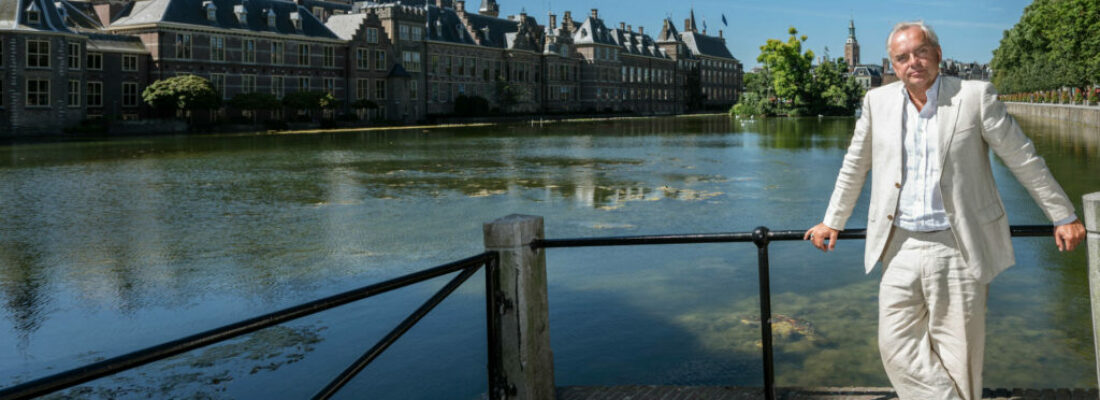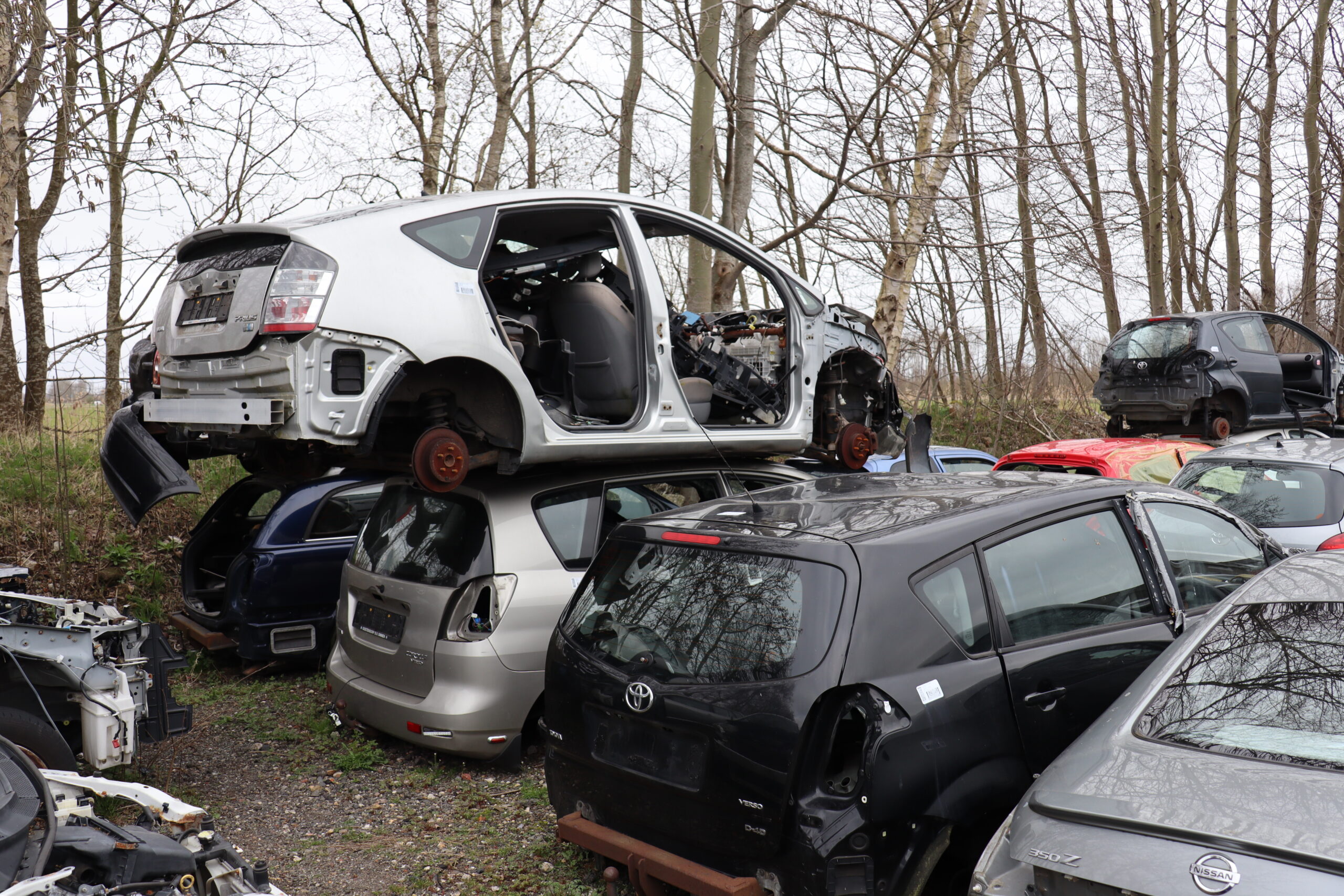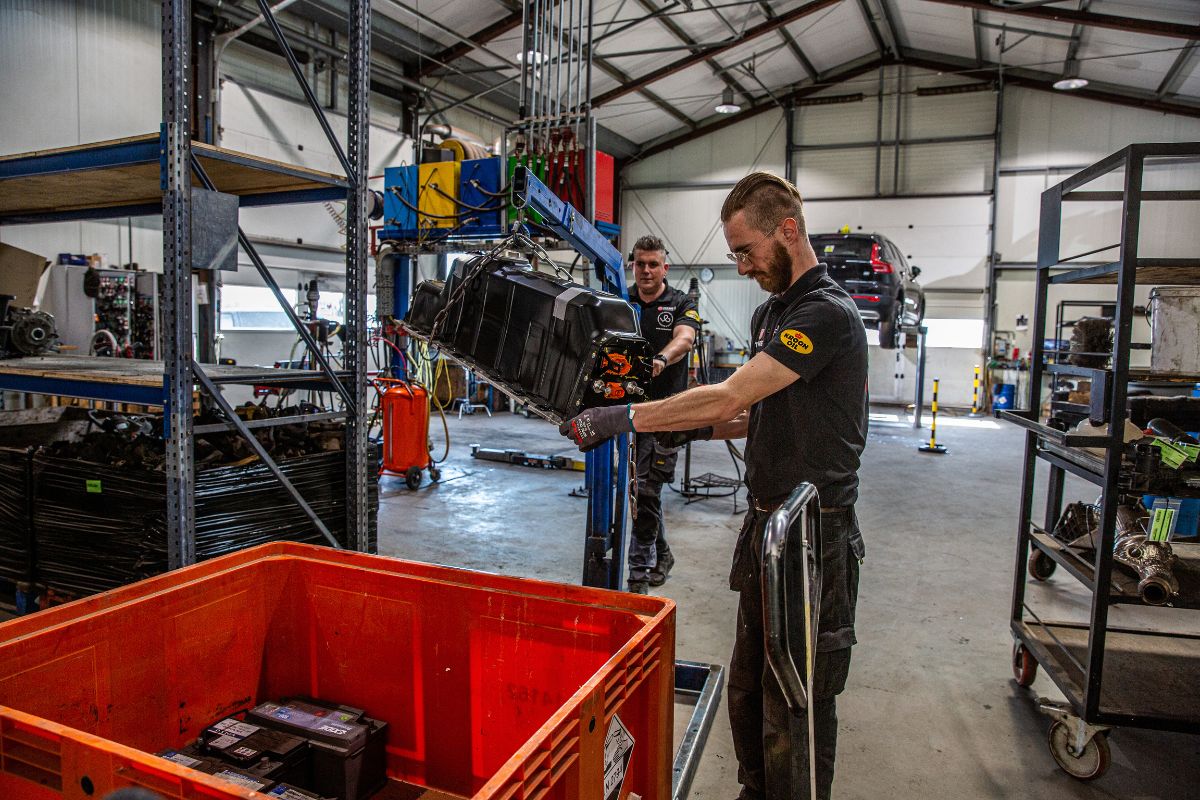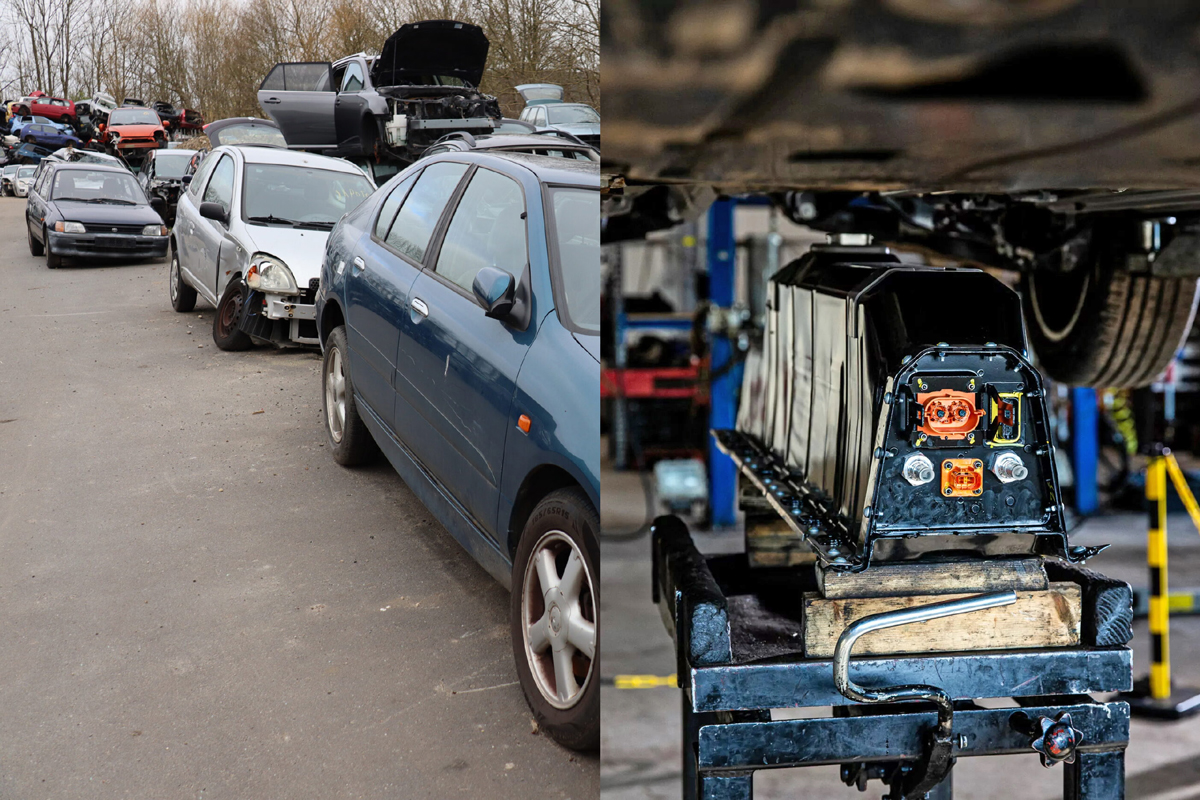A conversation with Steven van Eijck (chairman of the RAI Vereniging) about car recycling and ARN inevitably turns to talk of bigger matters – about the climate and measures being prepared by the government to ‘align’ the Netherlands with the Climate Agreement, as well as the momentum in the car industry to make genuine progress towards a circular economy.
Tekst Arjen van der Sar
Fotografie Maarten Noordijk
When talking about car recycling, Steven van Eijck admits that he is a genuine admirer of the Amsterdam-based German architect Thomas Rau, who is an advocate of the circular economy and spiritual father of the ‘convention on the rights of materials’. “According to Rau, when entering the value of materials into your accounts, you don’t allow for a depreciation down to zero, but to around 15 percent. Obviously, that seems counterproductive since, after all, fewer deductions means higher taxes. The greatest advantage to this approach is that it provides incentive to recycle the material at the end of its service life and repurpose it.” As Van Eijck explains it, this means that a builder accepts back your house or office at the end of its service life. Which prompts him to ask, “What if a manufacturer took back a car at the end of its useful life?”
Signature of automotive Europe
The reference to Rau sets the tone for the rest of the conversation. This is because Van Eijck believes that the circular economy will not happen automatically and that the automotive industry should be part of this. In that sense, our conversation with the chairman of the RAI Vereniging (this association is a stakeholder in ARN along with BOVAG, FOCWA and STIBA) takes place at an interesting time. The RAI Vereniging – celebrating its 125th year – hosted several major European automotive organisations during European Mobility Week. “These are organisations that are not accustomed to regular dialogue. During the conference, we had a very concrete goal, namely the signing of a joint promise to pursue zero traffic accidents in Europe by the year 2050. So, you might say that the meeting was successful from the get-go.”
“According to Rau’s philosophy, a builder would accept back your house or office at the end of its service life. What if a manufacturer took back a car at the end of its useful life?”
According to Van Eijck, the major breakthrough was not necessarily getting these signatures, “but the knowledge that we can engage in dialogue with these large, important organisations on a regular basis. It introduced a dynamic that enables the discussion of less popular topics from now on – like recycling and the circular economy.” EU Transport Commissioner Violeta Bulc had joined us to emphatically ask the various parties to seriously consider the circular economy – and with success. “Getting that topic on the agenda of a future meeting with all the important mobility-related organisations is a fantastic accomplishment. And a culture has been cultivated in which the circular economy is definitely a topic of discussion.”
Tremendous pressure
Such accomplishments are necessary since much work still needs to be done to achieve the goals of the Paris Climate Agreement. Van Eijck, former State Secretary for Finance (Balkenende I cabinet), contributed to the colossal task of developing ideas from the government agreement on climate change-related measures into concrete plans. “These plans need to be ready by the end of July for the final cabinet meeting. Over the course of a few months, the energy sector, industry and dozens of other parties have been working together under tremendous pressure on plans to ensure that progress is made in the Netherlands. All of the contributors to the so-called Climate Negotiating Tables of the Rutte III cabinet that provide input for this are working on proposals that are crucial to the way the Netherlands will help prevent the planet in coming decades from becoming too warm too fast, how the Netherlands will become more sustainable and how we can make the energy transition. These are major challenges that require major decisions.”
Professionalisation of car recycling
But it starts with concrete small steps, which were taken here today. Van Eijck praises the professionalisation of car recycling in the Netherlands. “The percentage of cars recycled is high. A large percentage of materials from each car are also repurposed and processed into reusable raw materials. But there is still a difference between theory and practice. You can talk about the costs and business model of car recycling to no end. Improvements could also be made to the dismantlement and reuse of parts. The degree to which raw materials can be created also needs to be developed further. As far as I’m concerned, ARN plays a key role in this.”
“We’re still in the transition phase. Things will have to be done differently in the future.”
Van Eijck does, however, believe that ARN needs to branch out, obviously without losing its rediscovered focus on core areas. “ARN could benefit from focusing not only on cars, but on the entire mobility spectrum. This would mean that, in the future, ARN could also recycle trucks and motorcycles.”
The circular economy has not come full circle yet
Van Eijck believes that his constituents fully understand that materials need to be returned to the chain and that we are still in the phase where this costs money. The circular economy has not come full circle yet and more funding is needed. “We’re still in the transition phase. Things will have to be done differently in the future. At the same time, the stakeholders and business professionals have a responsibility to stay on the ball and keep ARN on its toes. After all, it is up to manufacturers whether or not to take part in the initiative to give ARN a leading position in the field of car recycling in the Netherlands.”
“It’s a noble mission to work towards a circular economy, but the operation itself also has an effect on overall emissions and the environment.”
But ARN also needs to keep a critical eye on its own performance, the sustainability of ARN operations and of the entire chain. “What about CO2 emissions, all the energy used to achieve a recycling percentage of close to 100? It’s a noble mission to work towards a circular economy, but the operation itself also has an effect on overall emissions and the environment.”
The front end of the process
In the meantime, ARN and the chain remain responsible for the high percentage of cars recycled and the improved quality of the residual flows. Unfortunately, this chain – a complaint heard often – has very little influence on the efforts of manufacturers at the front end of the process. Can Van Eijck use his clout to get automotive designers and the Dutch recycling chain to engage in dialogue on material usage and dismantlement? Meaningful dialogue on POPs (non-recyclable or processable plastics) can lead to better separation and improved results in the future.
“It’s a great idea and we should make a lot more effort to get all those parties talking. One good example is the car roof systems manufacturer Inalfa, which offers the possibility to integrally dismantle sliding roofs from scrap cars, provided maximum opportunities for reuse. If the parties at the beginning and end of the chain would interact more and more attention would be devoted to modular construction and dismantlement, the benefits would be numerous.”
Sustainable approach to materials
What is the chance that such broad dialogue will take place? Van Eijck makes no promises. “But I see that the tide is turning. The fact that we’ve gotten all those car-related parties to make the ‘zero road fatalities’ pledge is a tremendous step forward. The tailwind we need to approach such difficult topics as the circular economy is tangible. I’ve noticed that the car industry believes that it should make more effort to take a more sustainable approach to materials. For years, the industry has been looking for materials to make cars lighter and reduce consumption. The time has come for the next step: the reuse and salvaging of raw materials.”
“I’ve noticed that the car industry believes that it should make more effort to take a more sustainable approach to materials”
There is a ‘but’, however. “The primary reason why manufacturers have taken notice is the business model. Until now, when introducing something new, consumers needed to expect an affordable car and shareholders a profit. Manufacturers need to be triggered on a different level than costs, benefits and profit. I’ve also noticed growing awareness of the fact that this planet does not have an unlimited supply of raw materials. The sense of urgency is growing. I also think that the diesel problem has opened the eyes of the industry. The sector’s image is at stake and manufacturers feel that the world is watching them with critical eyes. And that society expects a proactive contribution. This should result in fundamental progress in the future.”



